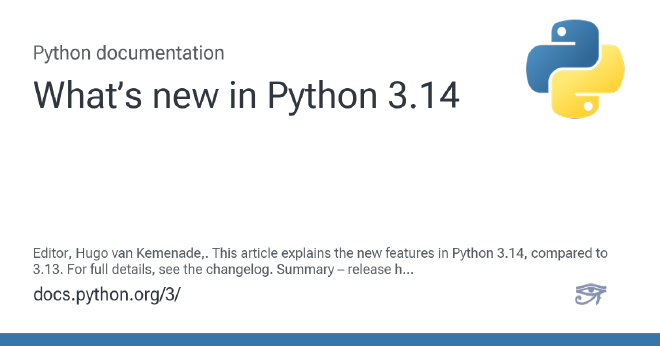Python 3.14 Beta Introduces Tail-Call Interpreter to Enhance Performance and New Features

Python 3.14 Beta 1 has been released as part of the upcoming major update, scheduled for early October. This version introduces several notable features, including an experimental tail-call interpreter designed to improve performance.
The new interpreter utilizes tail calls between small C functions that implement individual Python opcodes, rather than relying on a large C case statement. According to the Python documentation, this change can lead to performance gains of up to 30% in certain scenarios, with a geometric mean improvement of 3-5% on pyperformance benchmarks, depending on the platform and architecture. Currently, this functionality is compatible with Clang 19 and newer versions on x86-64 and AArch64 architectures, and further support is anticipated in future GCC releases.
This feature is currently optional, and users are encouraged to enable profile-guided optimization to fully leverage the interpreter’s capabilities. Detailed instructions for building Python with the new interpreter can be found in the documentation.
In addition to the tail-call interpreter, Python 3.14 includes deferred evaluation of type annotations, support for template string literals (T-Strings), a new Zstandard compression algorithm module, a zero-overhead external debugger interface, an improved C API, enhanced error messages, and a built-in HMAC implementation among various other updates.
For more information and to download Python 3.14 Beta 1, visit the Python Insider Blog.
Three additional beta versions are anticipated before the release candidates, with the final version expected to launch in early October.
Source: Phoronix.